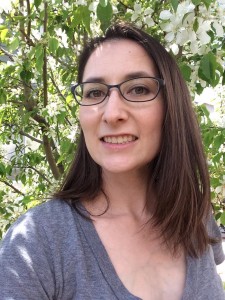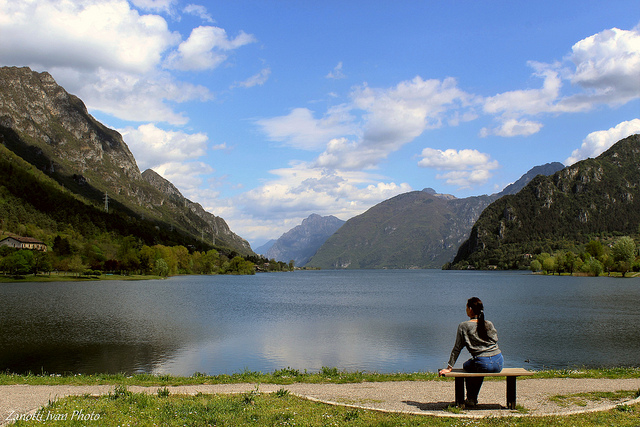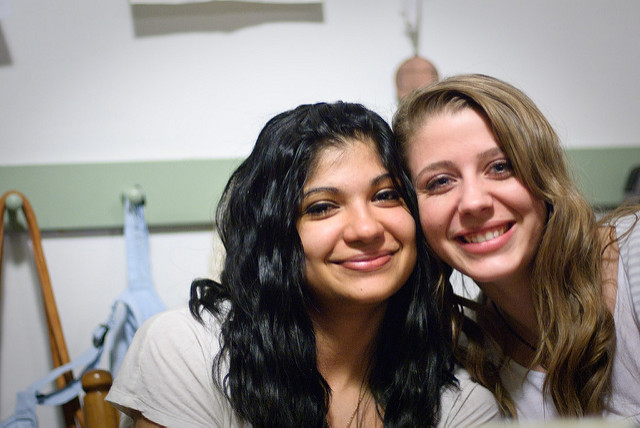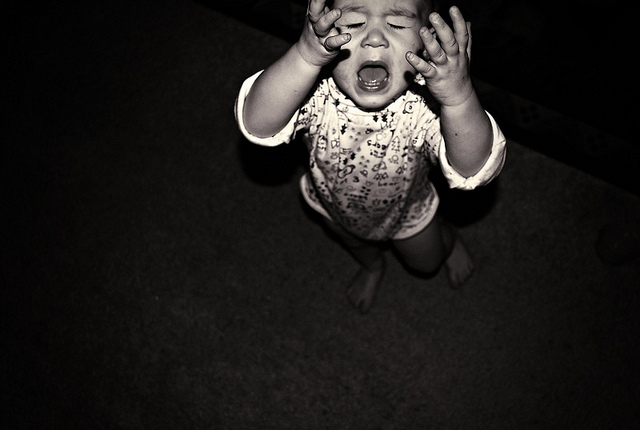Interview With an Adult Convert
By Holly Scheer
Vanessa Rasanen is a regular writer here at Sisters of Katie Luther and was kind enough to let me interview her about her experiences growing up as an athiest and coming to Lutheranism (and Christianity, in general) as an adult. Grab a cup of coffee and read along as Vanessa tells us about her experiences.
- How old were you when you became a Lutheran?
22 is when I became a christian. I didn’t really learn what Lutheranism was until I was 30 and became a member at our current LCMS church.
- What kind of religious life was in your family growing up?
I vaguely remember my baptism when I was 5 in the episcopal church, though I don’t recall going to church, though, until after my parents divorced when I was 10. At that point my dad tried to take us as often as he could. We attended episcopal services, where I learned the Lord’s Prayer, loved communion because I was starving, and sang hymns. I had no idea what any of it meant. Eventually my dad moved away, and I stopped going to church except when I was forced to during holiday visits to see him. During one such visit when I was in high school, I was forced to participate in a small episcopal church’s Christmas program, carrying the Gospel into the service. I protested, saying it felt wrong for it to be carried by someone who didn’t believe it, but I was told to do it anyway. I went through a lot of phases, though, from hating church and refusing to believe God existed at all, to wanting to open the bible and see why it was such a big deal to others, and back again. Dating atheists usually led to that biblical curiosity phase being cut short as I was often mocked.
- What was it like becoming a Christian as an adult?
It’s kind of a long story. I had a friend in college who gave me his Lutheran study bible (old NIV) and another friend give me a copy of C.S. Lewis’s Mere Christianity, but my boyfriend at the time was a staunch atheist. Every time I shared something interesting I had learned he would attack it and try to show me how logically it didn’t pan out. I really wanted to get married and have kids, but eventually that boyfriend decided he didn’t ever want to get married, and he felt like kids were a waste — he wanted to leave more of a mark on the world than just another person wasting air. In my youthful desperation to make the relationship work I decided I didn’t need to get married or be a mom. I just wanted to be with him, and despite all the verbal and emotional abuse I stayed in that relationship for over four years.
After I finally left that relationship, I ended up embracing promiscuity and my newfound freedom, though I always knew it was wrong and the guilt and shame were overwhelming. I eventually began dating a coworker at my summer job between my junior and senior years of college. It was supposed to be just a summer fling, as he didn’t meet any of my standards for myself. By all accounts he would have ranked as a firm loser, yet when I went back to school we stayed together. That relationship helped me heal some. I learned I could be treated well, with some semblance of respect and love — even from someone who didn’t stack up to my bar. He was not a Christian, insisting if God existed He should just plainly come down and tell us. His mom had lost her faith after his grandmother had passed away, so I still had no Christian influences aside from the few Christian friends who enjoyed conversations with me, even when I vehemently defended abortion. When I graduated and got a good paying job I asked my boyfriend to move with me. He declined. He told me he knew I wanted a family — a husband and kids — and he didn’t. He could have lived off my engineering salary, been a bum and let me support him, but he didn’t, and we parted ways as friends.
A month later I found myself in a sketchy dive bar hanging out with a coworker and his friends, one of whom was a quiet guy who had just gotten back from Iraq a few months earlier. I would see him a couple days later at a BBQ, and while other men shoved drink after drink into my hand, this man didn’t. He sat. He listened. He let me put my drunken feet on his lap. When I leaned over and told him I had had too much to drink, he grabbed the bottle from my hands and poured it out. I would later drunkenly give my number to his buddies and insist they make him call me. I made the worst possible impression, yet he still called me within the week and invited me over for dinner with friends. I asked if I could come over early to help him cook. We sat and chatted and nervously laughed. Friends came over. We ate dinner and played games, and then he walked me to my car. I told him he could kiss me (and I still regret how pushy I was).
We were inseparable from that day forward. We spent every day together talking about everything and anything. I learned he was an LCMS Lutheran, though he hadn’t been confirmed since his parents’ divorce had interrupted that for him. He told me he wanted a family and kids, but wouldn’t marry someone who wasn’t a Christian. He didn’t say it accusingly or as an ultimatum. Just as a fact. I soon asked him if we could start going to church together. We first attended the Episcopal church of a family friend of mine in a neighboring town. We tried several churches in that first year of dating, but my liberal leanings kept me from agreeing to any LCMS church. We settled in an ELCA church, and quickly became friends with the pastor. That pastor answered many of my questions, and would later marry us and baptize our first child. I remember being frustrated that my husband wasn’t curious about theology and didn’t care to ask the same questions I struggled with. I felt like the faith part was easy — that believing wasn’t the hard part, but trying to wrap my head around all the questions I had was frustrating and difficult. For my husband, though, he just shrugged, content with faith alone — it wasn’t until we had children that he began to show an interest in asking theological questions and seeking those doctrinal answers.
We switched to an LCMS church when a military move took us to an area with no ELCA congregations. This LCMS church was welcoming, allowing us to commune though we weren’t LCMS members, but we often skipped church if we just didn’t feel like going. I was heavily involved in a Protestant women’s bible group and picked up a lot of new knowledge from Baptist and Presbyterian friends. Everything started getting jumbled and confusing. My husband was so busy with his training, there was very little time for family devotions.
When we moved to Wyoming we decided to stick with the LCMS. I had since become a staunch conservative and intensely pro life, and didn’t want to go back to the ELCA. We settled in a church that immediately took us in, and the new member class was refreshingly strict on doctrine, emphasizing the importance of proper teaching and church attendance. My husband and I soon became members and began diving deeper into theology together. I still struggled with mysticism and the influence from other denominations, and I learned to be more careful about what I read and exposed myself to.
We now never miss a divine service, unless we are sick — even when our unbelieving family visits, they know we are busy on Sunday mornings (though they’re welcome to join us). We plan vacations around sound congregations, or if church isn’t available (like on a cruise) we take the bible and small catechism so we can do devotions with the kids.
It’s been nearly a decade since I met my husband. He didn’t force me to convert, but he made me feel comfortable exploring the curiosity I had had about God’s Word for all those years growing up. I finally could go to church or read and study without someone putting me down for it or telling me why it was wrong. I’ve had bumps along the way as I’ve been learning. I’ve tripped up and fallen for false doctrine, but by the grace of God, I have faith in Christ. I have a husband who catechises our children nightly and serves us so well, and I have amazing pastors who I simply can’t thank enough for all they’ve done for our family. Without them I think we might still be blowing in the wind a bit, rather than having the firm root we have.
- How is raising your children with religion different than your upbringing?
I was raised in a post modern home where truth was whatever you made it, where we were encouraged to find our own path. Now, my husband and I are teaching our children God’s Truth as revealed in scripture. When they have big questions, as kids are apt to come up with, we seek out Biblical Truth for them, going to our pastors when we are stumped. But everything is rooted in God’s Word and Sacrament with our church life and faith as a solid foundation — unlike the unsteady blowing-in-the-wind feeling I had growing up.
Photo Credit to Vanessa Rasanen




One Comment
katy
Thank you for sharing Vanessa! Thank you for your writing as well!